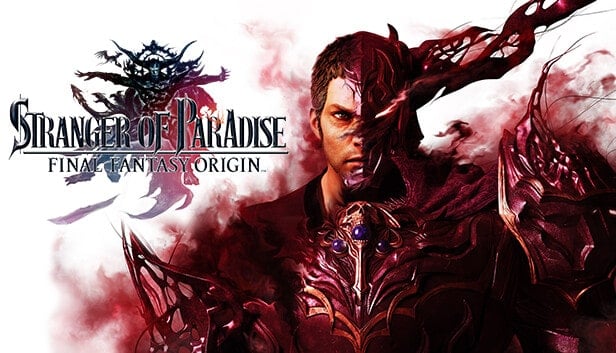Years after its release and polarizing reception among fans, there are plenty of players who still aren’t quite sure exactly what type of game Stranger of Paradise: Final Fantasy Origin truly is. Initially pitched as a “Final Fantasy Soulslike” that retells the events of the original game in the series, the reality is that it’s something more of a blend between the two. That said, to truly understand what Stranger of Paradise offers it’s necessary to outline the criteria of both Final Fantasy titles and Soulslikes, and even further clarify what qualities are common in Team Ninja games. Calling Stranger of Paradise a pure Soulslike is a bit of a misnomer, but at the same time, saying it’s akin to a traditional Final Fantasy game is just flat-out false.
Though the demo for Stranger of Paradise would be cause for concern among fans of both Final Fantasy and action RPGs in general, the full game has surprising mechanical depth and narrative weight. Regardless of all the “CHAOS!” memes pervading the discussion surrounding Stranger of Paradise, the game’s narrative comes together in a satisfying way to connect the title to the events of the original Final Fantasy, even if it happens to require carefully reading every piece of lore the game throws at you. And, in terms of Final Fantasy games with real-time action combat, few even come close to the level of depth and customization on offer in Stranger of Paradise, which has helped cement it as a cult favorite among Soulslike fans and fans of Team Ninja’s Nioh series.
What Defines a Final Fantasy Game?
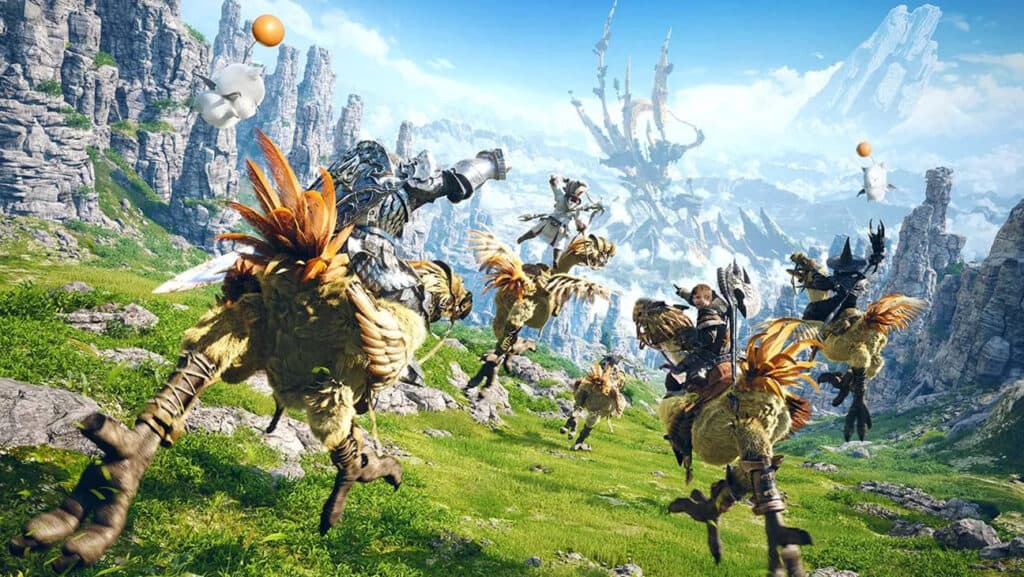
Attempting to identify the qualities that make Stranger of Paradise a Final Fantasy game first requires defining exactly what the Final Fantasy series’ signature elements are. Since 1987, Final Fantasy has been an RPG series synonymous with high-quality storytelling, hardware-pushing visuals and presentation, and captivating gameplay that introduces new mechanics and iterations with every mainline entry. Of course, thanks to the series’ reliance on an anthology model and switching up its setting and characters in every game along with those new mechanics, trying to outline the core elements present in each game can be a bit tricky. In general, a Final Fantasy game should provide players with the following, regardless of its number in the series:
- A plot centering on a group of heroes facing off against a world-threatening evil
- A careful mix of high fantasy and science fiction elements in its design, themes, and setting
- Party management and character building to maximize effectiveness in battle
- A mix of melee and magical abilities in combat, whether turn based, tactical, or real time
- Recurring magical creatures that have become part of the series’ iconography such as Moogles, Chocobos, and other recognizable monsters
- A twin emphasis on RPG mechanics and captivating storytelling
- Recurring spells and weapons, such as the appearance of summon monsters and inclusion of real-world legendary armaments like Excalibur and Masamune
- The use of Crystals as a stand in for the elemental forces governing the world
- Common themes that persist across each entry, such as rebelling against a tryannical evil, struggling to come to grips with one’s identity, and seeking forgiveness and redemption for past wrongs
What Defines a Soulslike?
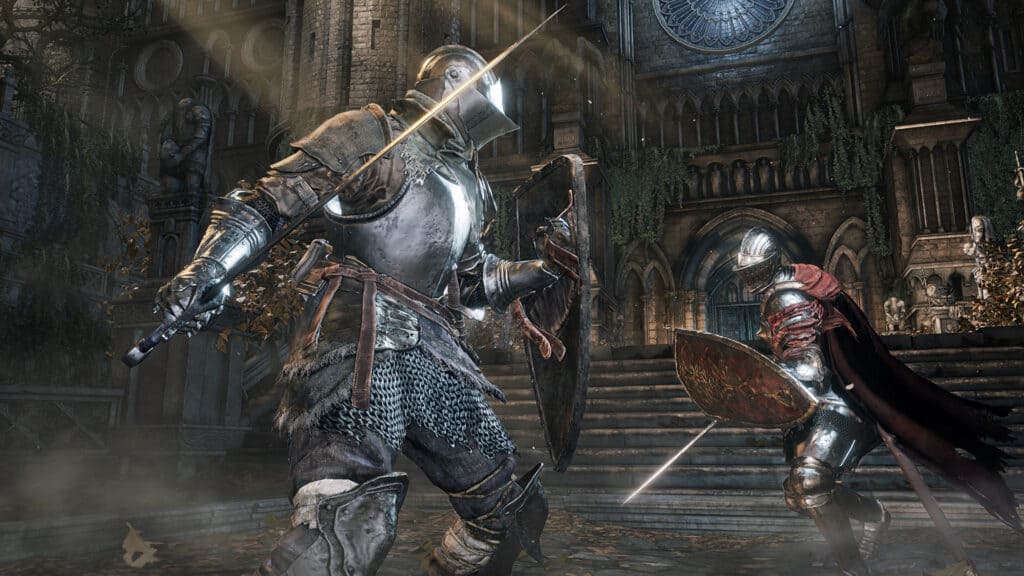
Like Metroidvania before it, the term Soulslike (or, in referencing the games by developer FromSoftware, Soulsborne) is a portmanteau that gets its genesis from the subgenre’s progenitor — Demon’s Souls. Though Soulslikes can be considered action RPGs, they (like Final Fantasy games) have many defining qualities that persist throughout each title embracing the Soulslike moniker that helps to set them apart. While FromSoftware’s Dark Souls series and Bloodborne serve as the primary examples of the elements that define the subgenre, other Soulslike games from various developers are now holding their own and even contributing something new to the table when it comes to moving Soulslikes forward. As a general rule, Soulslikes contain the following elements:
- Action RPGs with methodical combat, requiring careful observation of enemy patterns and attack strategies
- Sparse checkpoints that players use to rest, respawning all enemies in the area in exchange for refilling health and/or mana
- Challenging difficulty and high-spectacle boss fights that push the player’s skill to its limits
- Earnable currency that players use to level-up and upgrade their character, which is lost upon death and then permanently lost if not recovered at the site of the player’s demise
- Option for multiple playthroughs after beating the game on increasingly challenging difficulties, maintaining all character and equipment upgrades but facing appropriately scaled enemies
- Limitations on healing items and restorative magic, with recharges only available through resting at a checkpoint
- Complex and varied character builds that utilize a wide array of weapons and armor to synergize and scale with the player’s stats
Elements of Stranger of Paradise: Final Fantasy Origin
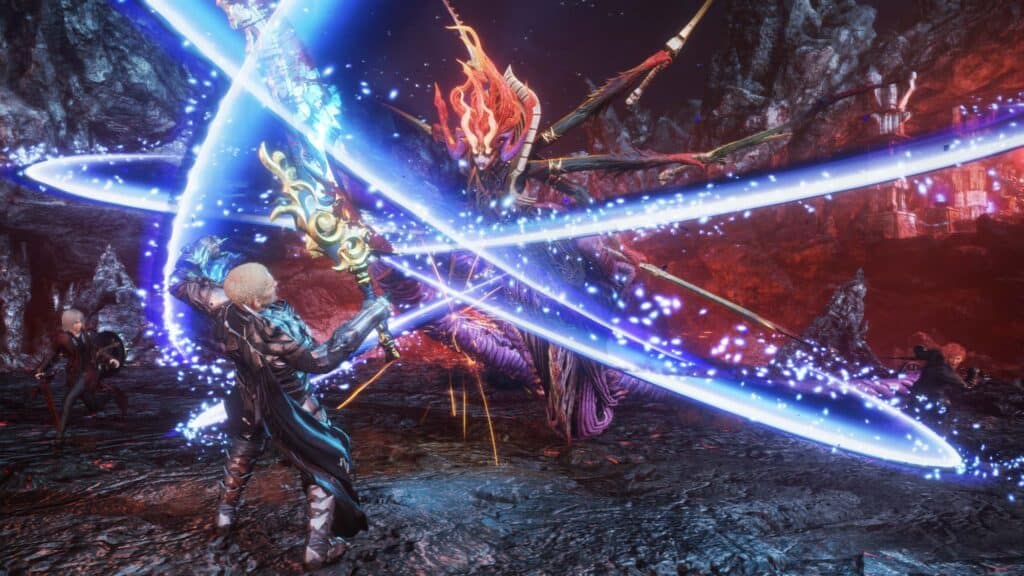
Looking at these lists of common Final Fantasy and Soulslike elements and then playing Stranger of Paradise will likely lead one to the conclusion that, while some of these things are present, Stranger of Paradise: Final Fantasy Origin is neither a “true” Final Fantasy game nor a “true” Soulslike. Instead, Stranger of Paradise actually veers closer to developer Team Ninja’s signature spin on the Soulslike formula on display in the Nioh series and the recent Wo Long: Fallen Dynasty. And to even further differentiate itself from other Team Ninja games, Stranger of Paradise has perhaps the most complex and exploitable buildcraft of any game from the developer thanks to the Job System and the various ways that the thousands of obtainable pieces of gear synergize with its various classes.
Rather than adhere strictly to the tenets of Final Fantasy, Soulslikes, or even other games from Team Ninja, Stranger of Paradise stands on its own as a unique and cult-favorite game thanks to its blending of elements from all three:
- Job System utilizing classes from across the Final Fantasy series, each with their own sets of abilities, gear affinities, and stat buffs
- Narrative that blends science fiction with high fantasy, examining the events that lead to the creation of the infamous “time loop” at the center of the original Final Fantasy‘s plot
- No earnable currency for leveling, no experience lost at death. Instead, players respawn at checkpoints, and these checkpoints refill the player’s healing items. All character progress and Job advancement is permanent
- Combat is fast-paced and precise, with hundreds of viable builds available depending on Job selection and gear loadouts
- Players can replay any of the game’s missions on increasingly challenging difficulties after completing the main quest; endgame and DLC requiring substantial investment into highly specific min/maxing and buildcraft
Stranger of Paradise’s Combat is its Definitive Pull
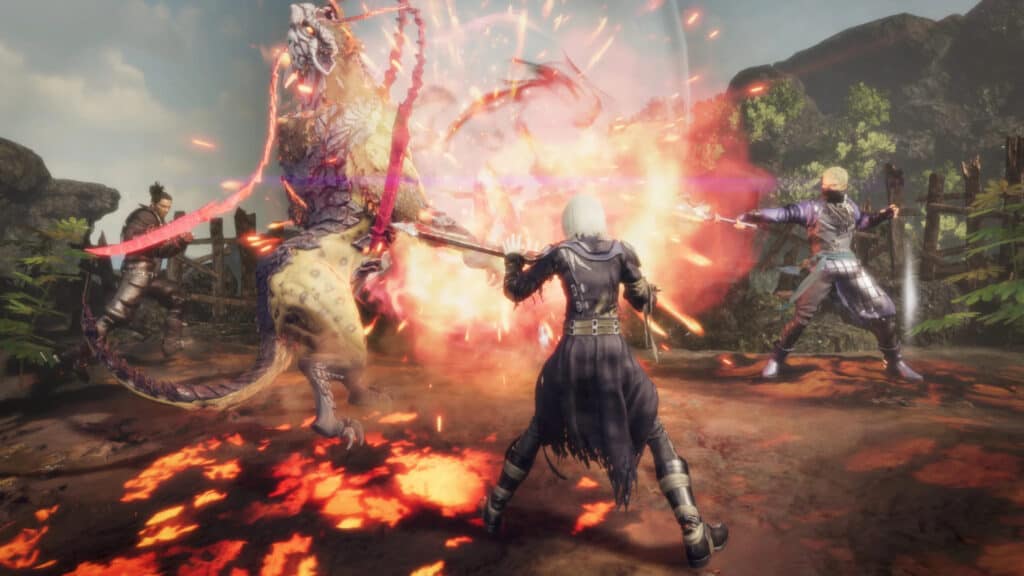
Though Stranger of Paradise‘s narrative does enhance the plot of the original Final Fantasy in retrospect, the game’s combat is its main pull and reason for players to give the title a shot. Rather than exist as a carbon copy of Nioh in a Final Fantasy setting, Stranger of Paradise‘s inclusion of a Job System helps it to stand on its own in a sea of Soulslike contemporaries. Additionally, the title offers players near-limitless freedom in how they build out their character thanks to the randomized loot and gear that drops often throughout levels. Players will eventually end up with hundreds of pieces of armor and weapons, each of which have various Job Affinities and stat-scaling. Playing the game on higher difficulties means better loot, and this gives way to a satisfying loop where the endgame and DLC see players crafting ridiculously overpowered builds.
Simply put, combat in Stranger of Paradise is both fun, frantic, and completely different from what most would expect given that the title is often described as a “Final Fantasy Soulslike”. Character movements and animations are closer to a fighting game in terms of speed and fluidity, which immediately sets the game apart from the slower-paced and methodical approach of Dark Souls. Further, the ability to switch Jobs on the fly and constantly try out new builds without the need to respec your character gives incentive for players to find a fighting style that works for them. Arguably, Stranger of Paradise doesn’t even truly begin until players beat the main quest and unlock the advanced difficulties, finally breaking into the game’s meta and experiencing the true brilliance of its combat.
How Stranger of Paradise Enhances the Original Final Fantasy
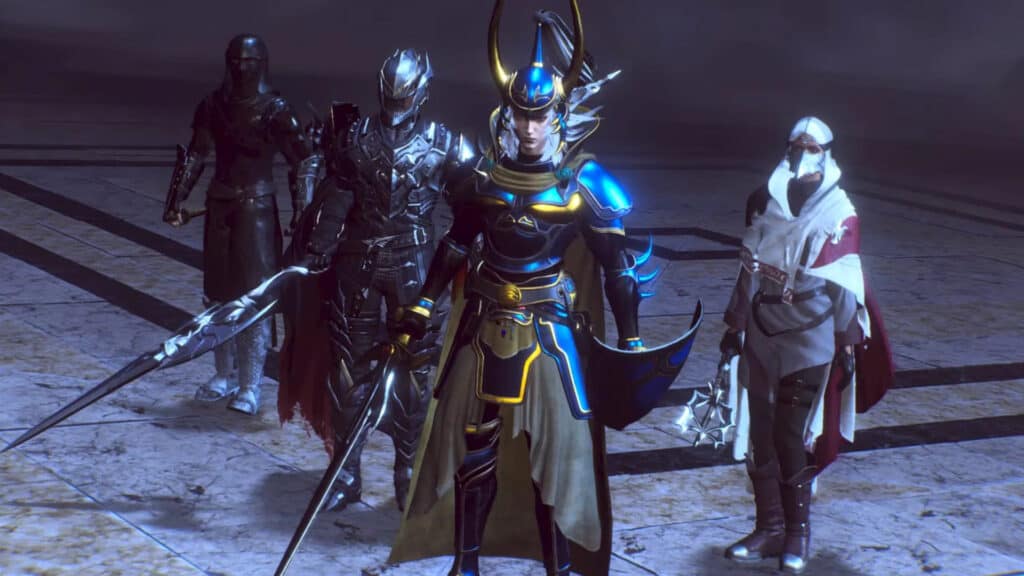
Final Fantasy stands as one of the few series in gaming where players flock to each new entry in hopes of a compelling story just as much as they’re looking for an entertaining new game. As a result, any game featuring the Final Fantasy name has certain expectations of delivering an engaging and moving narrative to coincide with its best-in-genre gameplay. In that regard, Stranger of Paradise certainly had a lot to live up to upon release, and looking at player reception to the title’s story shows that it landed for some while completely missing the mark for others. That said, even though combat is the reason to play Stranger of Paradise, its story does a great job of recontextualizing the events of the original Final Fantasy.
Without spoiling anything, Stranger of Paradise essentially takes place in the era before the creation of Garland’s time loop and examines the series of events that take place and give way to the original Final Fantasy conflict. Its characters might come off as a bit silly and the writing isn’t up to par with a mainline Final Fantasy game, but the conclusion to the tale sets up nicely how the lost civilization of Lufenia is morally ambiguous when it comes to their place in the narrative of the first game. Even the brooding (and somewhat cliche) main character Jack comes full circle to be one of the more endearing protagonists in the entire Final Fantasy series, proving himself to be a true leader and willing to sacrifice everything to save both the world and the people he knows as friends.
Verdict
Ultimately, Stranger of Paradise: Final Fantasy Origin is neither a Final Fantasy game nor a Soulslike, as it pulls disparate elements from each other to become something new entirely. It may share several qualities with Team Ninja’s other Soulslikes, such as a robust gear and loot system and faster-paced combat, but the inclusions it features from the Final Fantasy franchise like its Job System and risk-free leveling and progression make it much more accessible than the typical Soulslike. Despite the title’s mixed reaction from Final Fantasy fans, those who go into Stranger of Paradise looking for a game with solid combat, expansive character and build customization, and an open mind will find plenty to latch onto.
Games that end up becoming cult classics do so for a reason, whether it’s because they were largely ignored at the time of their release and find a new audience later on or feature some obscure and niche gameplay that happens to click for a very specific audience. Stranger of Paradise is definitely more of the former, rather than the latter, and it’s amazing to see how much the community is still thriving to this day with expansive guides available for ultra-powerful builds and plenty of players teaming up for the highly-difficult DLC missions.
The image featured at the top of this post is ©Digital Storefront Artwork.
